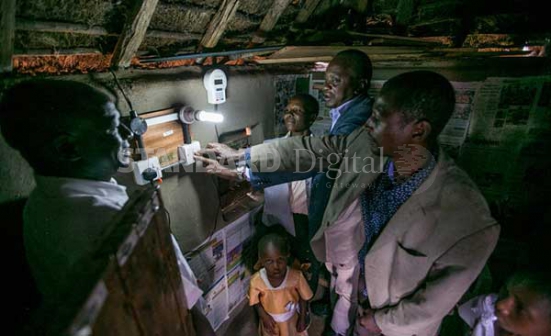×
The Standard e-Paper
Fearless, Trusted News

Pressure from the Jubilee administration to connect one million new customers to electricity every year may have pushed employees of Kenya Power to deliberately report ‘fake’ numbers to meet their targets.
An internal communication by top management seen by Weekend Business reveals that the power utility bosses have ‘spent a lot of money to clean up the mess’ but the vice has refused to go away.